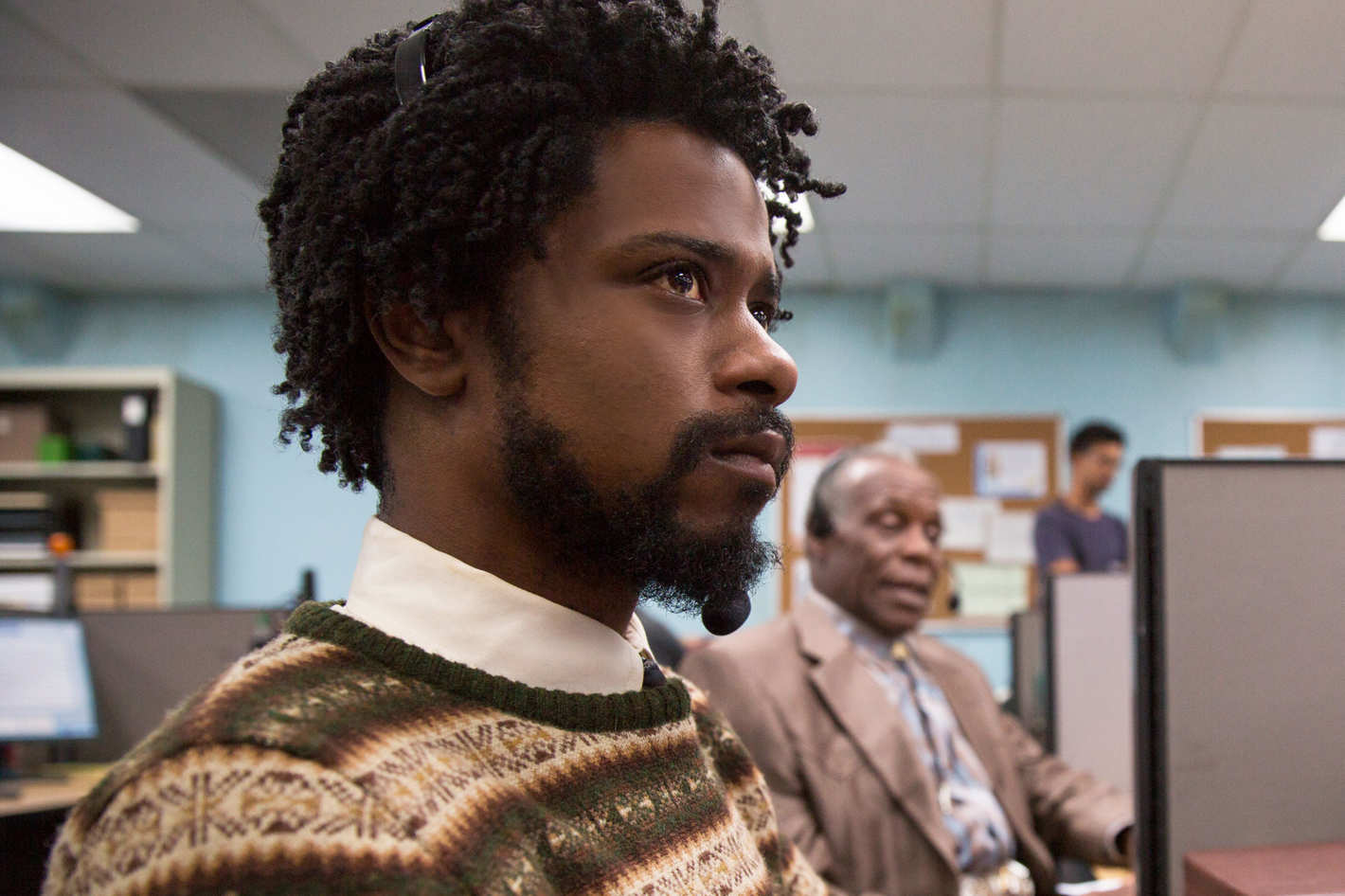Summer blockbuster season usually provides a fair share of generic popcorn films with predictable characters and plotlines. While a fun action movie is satisying every now and then, an oversaturation of them can make some people hungry for something original and substantive. If you are one of those people, then look no further than “Sorry to Bother You,” a movie that is about as unconventional as they come.
Boots Riley, best known as the lead singer of hip-hop group The Coup, made his directorial debut with “Sorry to Bother You.” Judging by the movie’s high level of stimulating visuals and social critiques, Riley clearly had a lot to show and say with his first feature film. It is extremely difficult to place “Sorry to Bother You” into just one category; the film is comedic, surrealist and political, with elements of science fiction thrown in for good measure. Riley casts the confines of genre completely aside.
The movie follows Cassius “Cash” Green (Lakeith Stanfield), a young black man who is looking for meaning in his life and a steady enough paycheck to allow him to pay rent. To meet the latter end, he takes a job at a telemarketing company where he is told that, if he does well enough, he will be promoted to the position of “power caller.” In order to make more sales Cash adopts a “white voice” (dubbed by David Cross) on his calls and soon finds himself soaring through the ranks of the company.

By itself the ludicrous central storyline provides a generous dosage of both social commentary and solid jokes. The effectiveness of Cash’s white voice makes a statement about the implicit racism in consumer culture, while the uncanny valley effect created by having another actor provide the voice coming from Stanfield’s mouth is continuously hysterical. Cash’s telemarketing success is, however, just one aspect of the intricate plot of “Sorry to Bother You.”
The movie’s colorful cast of characters drives both the political messages and the action. Detroit (Tessa Thompson) is Cash’s activist girlfriend who expresses herself through performance art and provocative earrings; Squeeze (Steven Yeun) is another employee at the telemarketing company who rallies the workers to form a union, just as Cash is beginning to succeed at his job; and Steve Lift (Armie Hammer) is the face that appears on every television screen, having become famous as the CEO of WorryFree, a company that claims to offer its employees stability for life.
Each of these characters pulls Cash in a different direction, creating a story about a man caught between love and wealth and between doing what is right and selling out. Therefore, the bulk of the film’s commentary centers on concepts such as capitalism and unionization. While they are by no means novel themes in cinema, the way that Riley and his cast bring them to life most certainly is.
The originality of the filmmaking is by far the strongest element of “Sorry to Bother You.” Surreal visuals make it impossible to look away from the screen as Cash drops into the home of whoever he is selling to, or as his apartment transforms as he starts to make money from his job; while many of the background characters provide moments of hilarity that keep the movie lighthearted, despite its more serious messages. For most of the runtime, Riley manages to strike a solid balance between nuanced discourse and pure entertainment.
During the movie’s last act, however, the plot takes a completely unexpected turn. The twist is something you need to see to believe, so I won’t spoil it for you. While Riley should be commended for not shying away from even his boldest ideas, the sheer strangeness of the bizarre quirks unfortunately served to undermine other parts of the movie.
Most of “Sorry to Bother You” is quirky and leans into magical realism, but it isn’t until the last act where it becomes completely otherworldly. The shocking final plot development changes the tone of the entire movie. For some viewers the film may become uncomfortable, for others laughable. Whichever reaction you have, the eccentricity of the film’s ending ends up overshadowing all of the subtler commentary that preceded it. Audience members are likely to leave the movie theater with the bizarre twist on their mind, rather than the complexity of capitalist culture.
Maintaining a consistent tone is something that makes politically-minded movies so difficult to execute. Being too overbearing with social commentary can make it difficult to keep the audience engaged, while relying too much on comedy or entertainment value dilutes the commentary’s underlying message. Riley is savvy in his handling of political messaging, but is heavy-handed with his use of shock factor. The film’s trailer showcases its inventiveness, but gives no indication of just how strange things are going to get. Obviously, keeping the twist ending under wraps amped up its impact, however, on the downside the drastic shift could turn even more off from the movie.
While the final act of “Sorry to Bother You” does not necessarily strengthen the film’s overall social commentary, it does enough to get people talking. After leaving the theater I felt an urgent desire to tell all my friends about quite possibly the weirdest movie I had ever seen. Whether or not that is the kind of buzz Riley hoped to create is debatable. Depending on what kind of moviegoer you are, the film’s strangeness could either draw you in or push you far away from the box office.
Despite the polarizing nature of the movie’s finale, if any aspect of “Sorry to Bother You” sounds intriguing to you then the film is still definitely worth checking out. The majority of the film is a solidly entertaining political comedy that won’t disappoint with its laughs or endearing messages. If you have friends who have seen it, then you should buy a ticket just so the two of you you can discuss the craziness of the twist. Plus, even if this particular movie doesn’t end up being your cup of tea, supporting a film such as “Sorry to Bother You” increases the likelihood that audiences will get more innovative stories to break up the monotony of summer blockbusters. There’s a sales pitch that doesn’t even need a white voice to sound good.

















